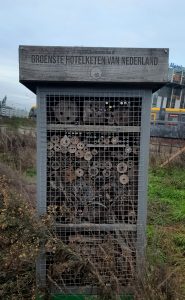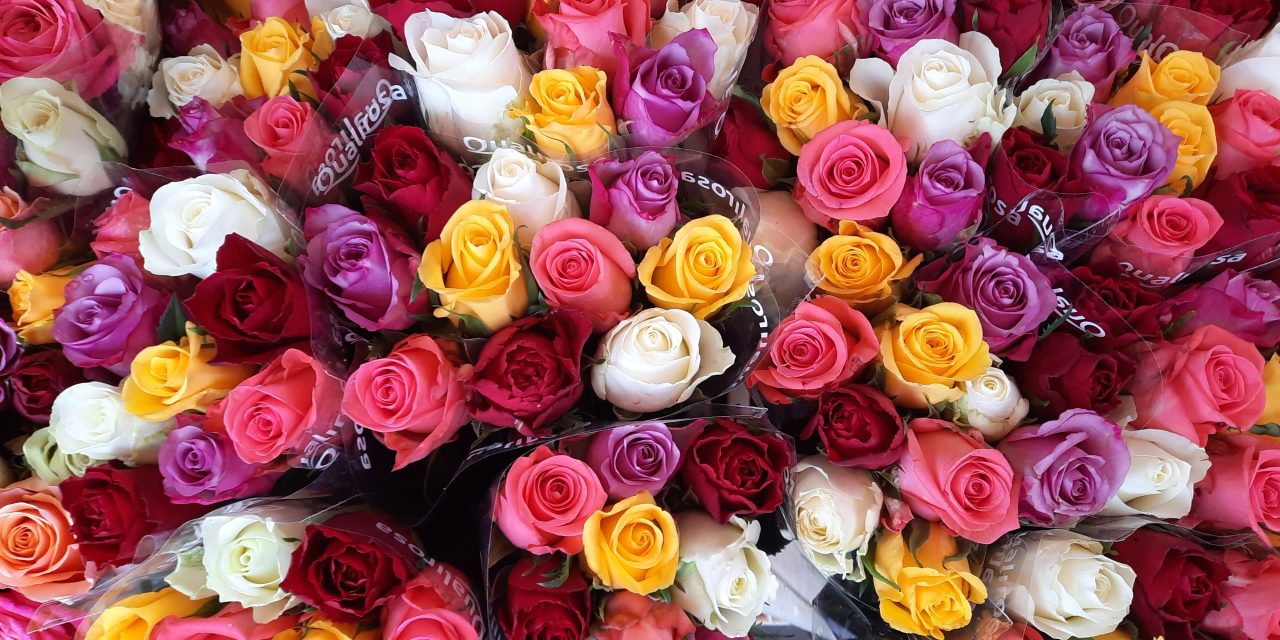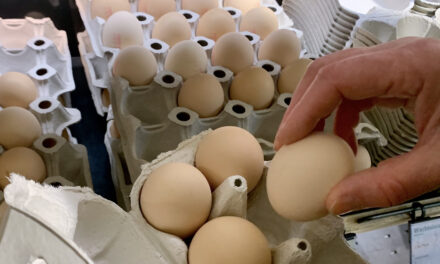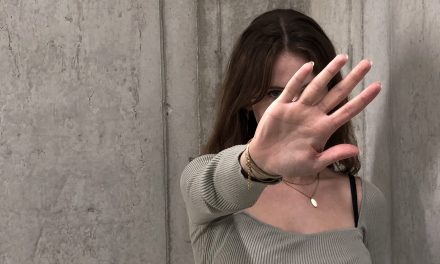Pollinators are facing difficulties to survive in this century. This is due to the increasing number of settlements and decreasing areas of natural habitats. However, one of the initiative groups in the Netherlands called “The Pollinators” has a solution on how to help the pollinators to survive.
These days pollinating species are having a hard time because of the flowers’ endangered species and in general, due to the destruction of nature. The Netherlands is the first country in the world which has already opened 1500 food banks for bees in the country in 5 years. Food banks for bees were founded for the first time in 2018. It proved to be a powerful initiation in society. Seeds can be planted in gardens, balconies, roof terraces, tree pits, etc..
The pollinators populations seem to have dwindled 75 % compared to a decade ago.
As “The Pollinators” claim, the beauty of the food bank for bees campaign is that everyone can participate in it. It does not matter whether you live in the city or in a village. Bees are struggling everywhere and they can be fed in a large scale. The organization believes that healthy ecosystems are essential for a flourishing planet and consider biodiversity and soil as the keys to abundant life.
A pollination biologist, who has studied pollination in rain forests of South America, Nick Meijdam, says that “when ecosystems would collapse due to the fact of too little pollinators, mankind would follow“. It is very important to take care of pollinators’ condition, so this scenario would not come true. The pollinators populations seem to have dwindled 75 % compared to a decade ago.
If pollinators would become extinct, our menu would be a lot less colorful and nutritious. More than 70% of what is on our plate, every day, needs to be pollinated by insects. In order to do their important work, pollinators need sufficient pollen and nectar. It is getting harder and harder to find it in the cities and around, because large areas of the landscape contain virtually no variety of insect food, and certain pesticides make them weaker. By sowing a diversity of organic flowers, it helps pollinating species to get their much-needed concentrates.
“When ecosystems would collapse due to the fact of too little pollinators, mankind would follow“, – pollination biologist, Nick Meijdam.
The question about what harm pesticides would do for pollinators was raised. To this question specialist N. Meijam answered that “with pesticides it is wanted to harm only pest insects, but in general pesticides harm the pest insects as much as the pollinators”. He thinks that next generation pesticides will be more selective and only (or largely) kill the targeted pests. “In many cases pollinators are essential for our crops, but also on a broader scale, for the functioning of nature as a whole.” When I asked him what the benefits of pollinators hotels were, he answered that he thinks “it is a beneficial for pollinators populations”. If pollinators become extinct, (not only insects, but also bats, birds and sometimes even mammals can act as pollinators), the catastrophe is enormous.

Pollinators hotel in Utrecht, the Netherlands.
Plants would find difficulty setting their seeds and as a result here will be no formation of fruits, which would cause starvation of organisms that depend on those nutrient sources. Additionally, the extinct pollinators no longer serve as food for predators. If there are not enough flowers for pollinators in a given area the populations will plummet, or even go to a critical point from which no recovery is possible. In that case they would not survive.
The amount of bees, butterflies, hoverflies and other pollinators continues to decline for such reasons as: disappearance of natural areas, intensive farming (monoculture), property development, invasive plants crowd out native ones by reducing food and shelter for pollinators. This degradation can cause multiple problems such as, various illnesses of pollinators such as viruses, fungi and bacteria which can spread from non-native to native pollinators. Other stressors, such as poor nutrition and pesticide exposure, may intensify the effect of diseases which lead pollinators to die. But what has changed so drastically that would cause this diminution?
The chief causes for pollinator habitat loss are agriculture, mining and human development.
The chief causes for pollinator habitat loss are agriculture, mining and human development. The decline in numbers and diversity of pollinator populations affects food security with potential losses in agricultural fields. The diminution of pollinators causes the declination or even disappearance of many plant species along with the organisms that depend on them, directly or indirectly. Foods witch is richest in micro nutrients such as fruits, vegetables and seeds depend on pollination. If a plant has been well pollinated, a larger and more uniform fruit will develop. Without pollinators, the human species and all of earth’s terrestrial ecosystems would not survive.
During the past 30-plus years, pollinator populations have suffered serious losses due to invasive pests and diseases, such as exposure to pesticides and other chemicals, loss of habitat, loss of species and genetic diversity, and changing climate.
Particularly honeybees, have been around for millions of years and are responsible for pollinating over a third of our food supply and 90% of wild plants. Pollination is key in the reproduction of many plants. Around 75% of the different crops we grow for food depend on pollinators to some extent.
Everyone can make their own input into saving pollinators.
Nor it is a very optimistic initiative to help for pollinators, it is still not very widely known. But everyone should know some tricks on how we can help for pollinators. First of all, plant native flowers in diversified areas wherever you can! It will not just make your environment look more engaging, but also will have a good impact for the pollinators. Secondly, flowers bloom not only in late spring and summer, but also in early spring and autumn. Take full advantage of the blooming season! And lastly, avoid pesticides. It causes harm not only for pollinators, but also has an impact on the honey we eat. If the pollinators will be protected, we will also be.
The food banks for pollinators in the Netherlands are open a few weeks before National Sowing Day which is on 20th of April. Everyone can come and take native flower seeds of that area for free and make their own input into saving pollinators and us.




